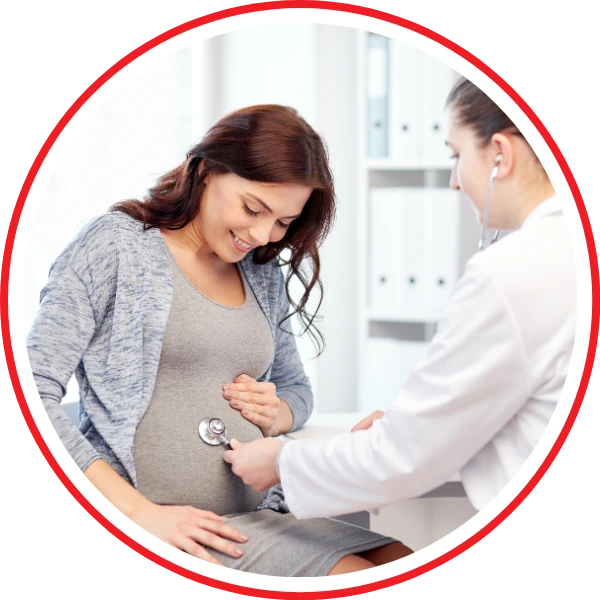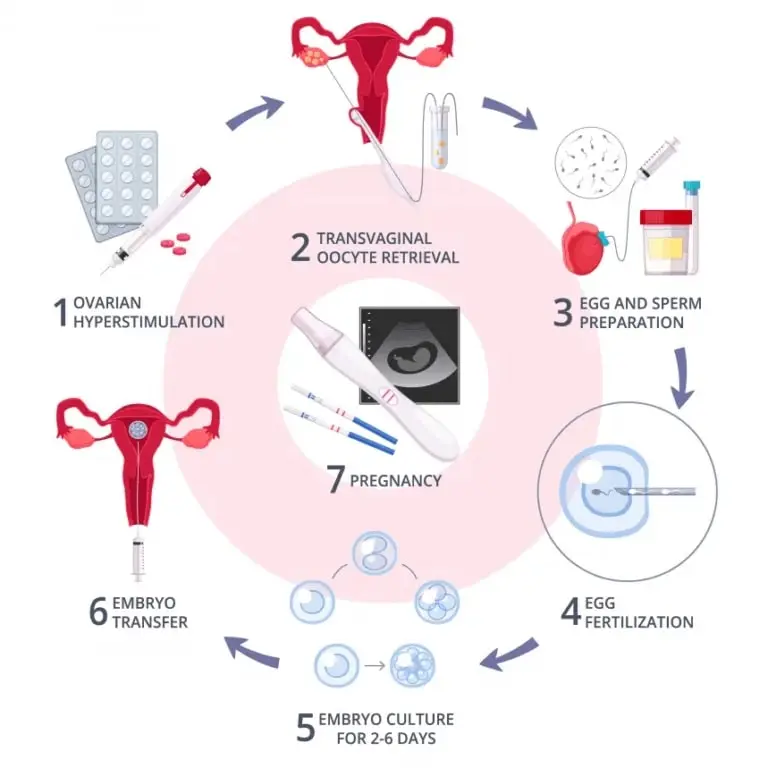
Infertility is a deeply challenging experience for couples who wish to build a family. Thanks to medical advancements, treatments like In Vitro Fertilization (IVF) have transformed lives by making parenthood possible for those who cannot conceive naturally.
This detailed guide explains everything you need to know about IVF treatment—from the process and benefits to recovery, follow-up pathways, and important considerations—so you can make informed decisions with confidence.
In Vitro Fertilization (IVF) is a form of assisted reproductive technology (ART) in which eggs and sperm are combined in a specialized laboratory to create embryos. The resulting embryo(s) are then carefully transferred to the woman’s uterus, where natural implantation can occur.
IVF is recommended for:
By bypassing several natural barriers to conception, IVF offers a controlled and effective pathway to pregnancy.


Fertility treatments can be both physically and emotionally challenging. Supportive measures include:
Emotional resilience plays a vital role in the overall IVF journey, making support systems an important part of treatment.
IVF treatment is one of the most advanced solutions for infertility, offering new hope for individuals and couples struggling to conceive. With structured medical protocols, cutting-edge technology, careful post-operative pathways, and personalized follow-up care, IVF provides a safe and effective route to parenthood.
If you are exploring fertility treatments, consulting an experienced reproductive specialist will help you understand your options and guide you toward the best chance of success.


Senior Consultant in Urology / Andrology and Robotic Surgery
CONSULTS ATIndraprastha Apollo Hospital, Delhi
EXPEREIENCE :Senior Consultant in Urology / Andrology and Robotic Surgery
CONSULTS ATIndraprastha Apollo Hospital, Delhi
Urologist, Andrologist, Urological Surgeon, Urethral Stricture, Hypospadias and Penile Curvature Cases.
CONSULTS ATSCI International Hospital, Delhi
EXPEREIENCE :Urologist, Andrologist, Urological Surgeon, Urethral Stricture, Hypospadias and Penile Curvature Cases.
CONSULTS ATSCI International Hospital, Delhi
Director of IVF and infertility department at Fortis Memorial Research Institute
CONSULTS ATFortis Memorial Research Institute, Gurugram
EXPEREIENCE :Director of IVF and infertility department at Fortis Memorial Research Institute
CONSULTS ATFortis Memorial Research Institute, Gurugram
Chairman, Academics and Research Division Urology
CONSULTS ATMedanta Hospital, Gurugram
EXPEREIENCE :Chairman, Academics and Research Division Urology
CONSULTS ATMedanta Hospital, Gurugram

![]() Istanbul, Turkey
Istanbul, Turkey
Acibadem healthcare network in Turkey: A global leader in advanced medical care and innovation.
![]() Sector 51, Gurugram, India
Sector 51, Gurugram, India
Artemis is the first JCI and NABH accredited multi-specialty hospital in Gurgaon.
![]() Rajendra Place, New Delhi, India
Rajendra Place, New Delhi, India
One of Asia's largest Bone Marrow Transplant center with 1500 healthcare providers
![]() Vasant Kunj, Delhi
Vasant Kunj, Delhi
NABH accredited hospital, NABL accredited LAB, NABH accredited blood bank, Green OT certification
IVF (In Vitro Fertilization) is an assisted reproductive technology where eggs and sperm are fertilized in a lab to create embryos. The healthiest embryo is then transferred to the woman’s uterus to achieve pregnancy.
IVF is recommended for couples with infertility due to blocked fallopian tubes, irregular ovulation, endometriosis, poor sperm quality, unexplained infertility, or when other treatments like IUI have failed.
A single IVF cycle typically takes 4 to 6 weeks, starting from ovarian stimulation to embryo transfer. The pregnancy test is usually performed about 12–14 days after transfer.
Most parts of IVF, such as egg retrieval, are performed under sedation or anesthesia, so there is little to no pain. Some women may experience mild bloating, cramping, or discomfort during ovarian stimulation or after retrieval.
IVF success rates depend on factors such as age, overall health, and cause of infertility. On average, women under 35 have a 40–50% success rate per cycle, while chances decrease slightly with age.
Possible risks include mild ovarian hyperstimulation syndrome (OHSS), multiple pregnancies, or minor side effects from medications. However, with expert monitoring, these risks are minimal and manageable.
The number of embryos transferred depends on the patient’s age, fertility history, and embryo quality. Often, one or two embryos are transferred to balance success rates and reduce the risk of multiple pregnancies.
Yes. Extra high-quality embryos can be frozen (cryopreserved) and used in future cycles, making it possible to attempt pregnancy without repeating the entire IVF process.
If pregnancy is confirmed, patients continue hormonal support for a few weeks until the placenta is fully functional. Regular follow-up visits and ultrasounds ensure healthy progress of the pregnancy.
Maintaining a healthy diet, exercising moderately, avoiding smoking and alcohol, reducing stress, and following prescribed medications all significantly improve IVF success rates.